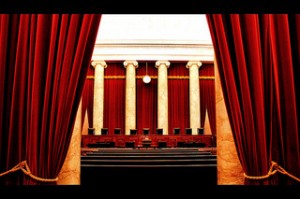Copyright: Annotations to State Codes are not Protectible Works of Authorship, Placing Georgia Code Annotated in the Public Domain
Posted
27 Apr 2020 in Case Notes, Commentary
Georgia v. Public.Resource.Org, Inc., No. 18-1150, 590 U.S. ___ (Apr. 27, 2020). Affirming the Eleventh Circuit-which had reversed the lower court, the Supreme Court holds that annotations to the Georgia Code are effectively produced by lawmakers, who cannot be "authors" for purposes of the Copyright Act, meaning that Lexis, which contracts with the State to license and distribute the annotated code, cannot prevent the annotated version from being placed in the public domain. The Copyright Act grants monopoly protection for "original...






